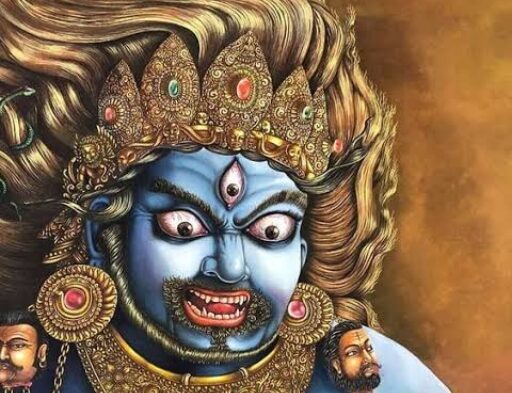In the sacred town of Halisahar, there was born a soul touched by the Divine, a soul whose very existence was an offering to the Supreme Mother—Ramprasad Sen, a sadaka of the highest order. From his earliest days, the world seemed to fade around him, and his heart beat only for Kali. He was no ordinary seeker; he was a realized aspirant whose consciousness was tuned to the vibrations of the Eternal. Even as a child, he walked the inner path with the discipline and insight of one who had tasted the nectar of the Divine.
The temple bells, the sacred chants, the flickering lamps—they spoke directly to his soul. In every rustling leaf and every whispering wind, he perceived the presence of the Mother. His mind, serene yet intense, was a temple where the Goddess resided. Ramprasad did not merely pray or sing—he became prayer incarnate. His heart melted into devotion so complete that the boundary between seeker and Divine vanished.
As he matured, his longing for Kali deepened beyond words or rituals. He immersed himself in Tantra, Bhakti, and Jnana Yoga, yet his practices were not mere study—they were living sadhana. Every breath, every step, every thought was a mantra, a hymn, a communion with the Goddess. In meditation, he saw her form radiant and infinite; in his songs, her voice sang through him; in his heart, she was the only reality.
He became one with the Mother. The dualities of the world—joy and sorrow, life and death—dissolved before the infinite love that flowed through him. His poetry, known as “Ramprasad Gaan,” is not merely literature—it is the very vibration of devotion, the heartbeat of the soul in union with Kali. Through his compositions, one can feel the ecstasy of surrender, the humility of love, and the transcendence of worldly existence.
Even in ordinary acts, he manifested the extraordinary. Fetching water, walking through the village, gazing at the sky—each was an offering, each a step on the ladder of union with the Divine. He was a sadaka who had attained the higher stages of sadhana, where the mind dissolves, the ego melts, and only the Mother remains. His life became a living mantra, a hymn of eternal devotion, a model for all who seek the Divine not in theory but in the very core of their being.
The sacred ground where he lived, known as Ramprasad Vita in Halisahar, became a beacon for seekers. Here, the air still seems fragrant with his devotion, the walls echo with his songs, and the earth itself holds the vibrations of his union with Kali. Pilgrims and devotees come here not merely to see a historical place, but to feel the presence of a soul who reached the heights of surrender, love, and realization.
Through centuries, his songs continue to awaken hearts. Every note, every word, every pause in his music carries the fragrance of the Divine, inviting seekers to taste the bliss of surrender, to feel the fire of devotion, and to witness the eternal dance of the Mother and her devotee. Ramprasad Sen showed that the path to God is not in grand rituals or distant contemplation, but in the total, intimate surrender of the heart to the Divine, where every moment becomes worship, and every breath becomes communion.
He is a lighthouse for souls wandering in darkness, a bridge between the human and the infinite, a living testimony that love, devotion, and surrender are the keys to realizing the Eternal. In Ramprasad’s life, we see the essence of Bhakti at its highest stage—pure, unbounded, and luminous. Through him, the Mother herself seems to smile upon the world, drawing each seeker closer to the infinite embrace of Kali.
